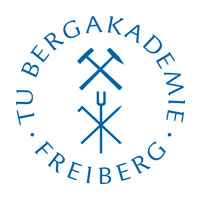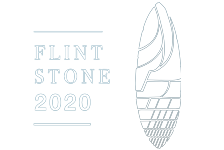
Technische Universität Bergakademie Freiberg (TUBAF)
TUBAF – The „Technische Universität Bergakademie Freiberg“ (TUBAF) was founded in 1765 as one of the first mining schools in the world. It is a technical university that traditionally focuses on research in the areas Geo, Material, Energy and Environment. As part of this profile, research dealing with the Earth´s resources is of particular interest and pursued in projects covering the whole process chain from exploration and recovery of resources, via production, refining to the recycling of products. The university hosts 6 departments, 10 central facilities and 40 research institutes and employs 86 full professors among nearly 2000 employees and educates around 6000 students. It is ranked third in the amount of external funds per professor in Germany (744k€/Professor in 2014).
In the proposed project, the Institute for Inorganic Chemistry of the TUBAF will be primarily involved in WPs focused on the synthesis, structural, morphological and mechanical analysis of the targeted hard materials. This includes the preparation of precursors which are transformed using techniques such as sol-gel or polymer derived ceramics processing (PDC). Part of the Institute is the high pressure laboratory, which is dealing with the synthesis and development of novel (ultra)hard materials and high pressure phases. Within the project, TUBAF will lead WP2, the main tasks of which are:
– to elaborate a ‘recepie’ for the manufacture of PCBN and PCD compacts comprising new CRM-free binder materials which provide high (hot) hardness, high strength, high toughness in combination with high thermal stability and high tribochemical resistance within the addressed application areas;
– to identify novel superhard phases as potential substitute for the replacement of diamond and PCBN in tungsten and cobalt-free future cutting tools within the addressed application areas. TUBAF will moreover facilitate the transfer and upscaling of the manufacture of the new composite materials and demonstrator/prototype tools made thereof in WP3 and WP4. Due to its expertise in the design of special high pressure cells and gasket materials, TUBAF will also provide support for the optimization of high pressure assemblies that will be used in these work packages.
CV of persons who will primarily be involved in the project
Prof. Dr.-rer nat. habil. Edwin Kroke (male) received his PhD degree in chemistry in 1995 at the U. of Oldenburg, Germany. He moved on to the Materials Dept. at Darmstadt U. of Technology as postdoctoral researcher and assistant professor in the field of ceramics. After a stay at the U. of California (St. Barbara, 2001-2002) and an associate professorship at the Dept. of Chemistry, U. of Konstanz (2003-2005), he received a full professor position at TUBAF in 2005, where he is leader of the group “Silicon Chemistry and Chemical Materials Science”. As a founding member of the “Freiberg High Pressure Research Centre (FHP)”, Kroke initiated high-pressure–high temperature (HPHT) research in Freiberg. During his career, he has been actively involved into 44 research projects with company, state, federal and EU funding, 21 of which were associated with precursor-derived ceramics and/or high pressure synthesis. Kroke is co-inventor in 35 national, European and international patent applications, 10 of which are concerned with precursor ceramics and/or high pressure synthesis of hard ceramic materials.
Dr.-Ing. Marcus Schwarz (male) studied materials science at the Darmstadt U. of Technology. He received his PhD degree from work on the superhard high pressure phase of silicon nitride (γ-Si3N4) in 2003 and teamed-up with E. Kroke at U. of Konstanz and TUBAF. During several guest-stays at the Bavarian Research Institute of Experimental Geochemistry and Geophysics (BGI, University of Bayreuth), the National Institute of Materials Science (NIMS, Japan), and at large-volume high pressure X-ray measurement stages at the synchrotrons DESY (Hamburg, Germany) and ESRF (Grenoble, France), Schwarz developed an expertise in materials synthesis using multianvil high pressure technology. Dr. Schwarz is head of the large volume-high pressure laboratory at TUBAF which he planned and built up within the High Pressure Research Centre (FHP) established in Freiberg in 2007. During his career, Schwarz has been actively involved in 9 research projects with bilateral, state or federal funding. In four of these projects he has been working as a principal investigator and in the remaining ones as supervisor for PhD students. Six of these projects are associated with the high pressure synthesis of ceramic hard materials.
